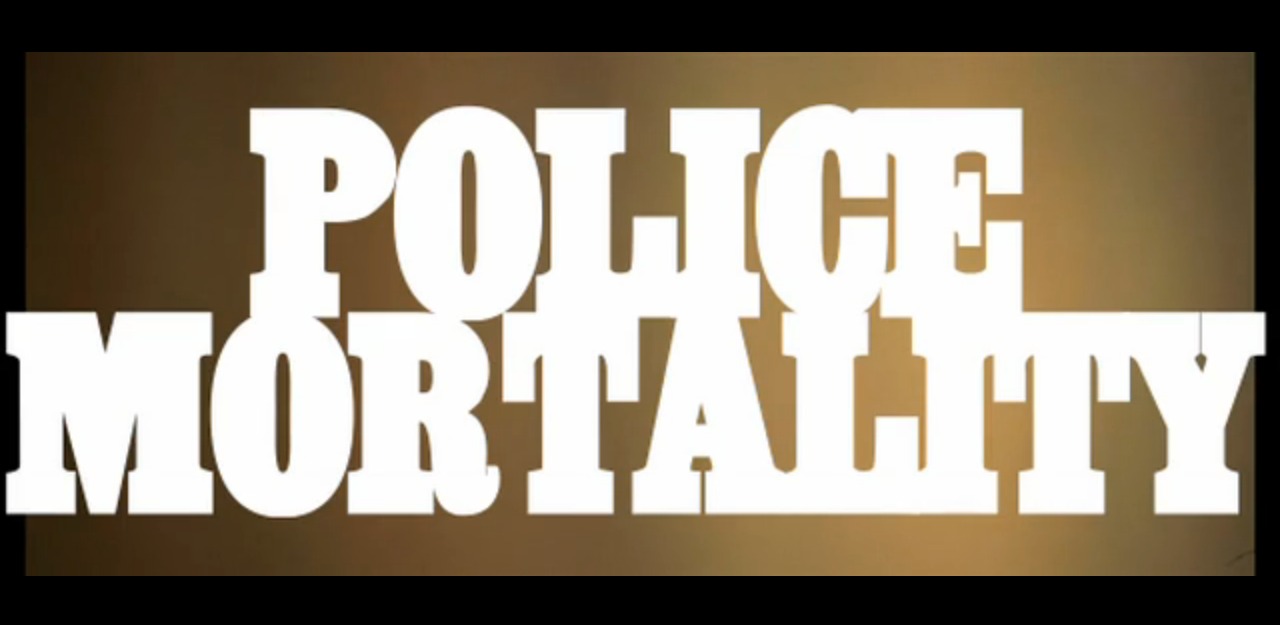Leading up to May Day last year, a series of detourned clips from propaganda movies circulated to promote the call for a General Strike. A clip from They Live shows a very familiar heavy-handed eviction of a homeless camp, ending with the phrase: AVENGE ZUCCOTTI. Another, from Robocop sees a all the officers in a police department dropping their badges and going on strike. GENERAL STRIKE. In another, the Terminator fires on dozens of cop cars from a window, destroying them. His robotic display reads: “Human Casualties: 0.” The slogan: NON-VIOLENT DIRECT ACTION.
The clips, well-shared on social media by OWS-ers, could have become a relic of Occupy’s last yawn before its current hibernation. Instead, they’ve developed into a feature film: Police Mortality, by the anonymous guerrilla cinema collective Anti-Banality.
Combing through nearly 200 cop-centric films, the group extracted hundreds of scenes. Many are hilarious out of context, in which police are killed, kill, or otherwise act piggish. Impressively, the clips communicate well enough with one another to form a fairly coherent narrative. In this regard, the guerrilla filmmakers were far more successful than their 2012 feature Unclear Holocaust, in which every instance of New York’s destruction in a Hollywood movie is woven into a single disaster flick.
While still demanding of a bit of imagination from the viewer, the story begins with the suicide of a retired cop. Further pushed by a student occupation and the murder of an entire Occupy-esque movement, a large number of police strike, leading to an epic final battle of cops against cops (with much thanks to footage from 2012’s The Dark Knight Rises.) The endgame, according to a paranoid cop from the film, is ‘a precisely formulated national conspiracy of police genocide”—an anarchistic exercise in, in Anti-Banality’s words: “wish-fulfillment.”
But before a zombie-Breitbert emerges claiming this as proof of OWS’s terroristic ambitions, the film is careful to use police as both protagonist and antagonist—even deputizing all of civil society for the climactic battle. Anti-Banality is not merely hopping on populist anti-police sentiments here, but rather deconstructing our pop-cultural ideas that criticize, but ultimately justify policing. There are the bad apples like Richard Gere in Internal Affairs, the vigilante of Dirty Harry, and cops as the last line of defense of civilization in a city that will “tear itself apart” (Robocop) without them. While the film is witty enough that audiences will likely not be compelled to march with torches to their local precinct, the horror of police violence and its annihilating consequences for social revolution seem to be the filmmaker’s main concerns.
Police Mortality is a Keystone Cops-flick for an era where police murders, such as the cases of Ramarley Graham, Aiyana Jones, Sean Bell, Kenneth Chamberlain Sr., Noel Polanco, to name a very few, seem a near daily occurrence. In this regard, Anti-Banality does not push far enough out of comedy and towards moments when the daily tragedies inflicted by the police are truly felt. One such scene, tucked between typically ultraviolent scenes of police raping and murdering civilians, uses dialogue between Jack Nicholson and Patricia Clarkson clipped from The Pledge. The woman, a mother of a murdered child says to Nicholson: “There can’t be such devils out there.” A deadpan Nicholson responds, “There are such devils.”

